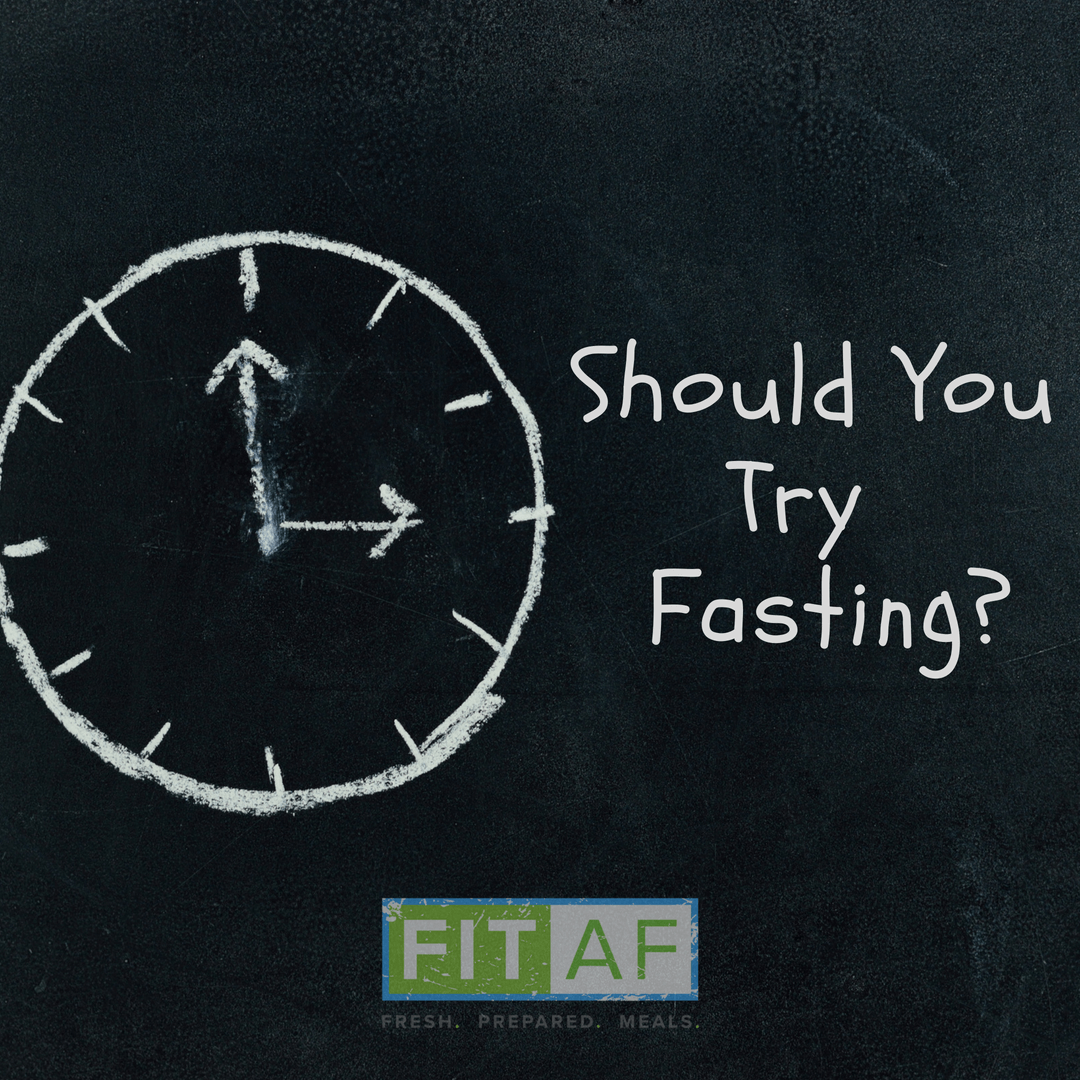No products in the cart. Go to menu

Should You Fast?
Specifically I’m going to be talking about Intermittent Fasting in this post which has been making headlines. .
Now, while “fasting” is not new by any means, as people have always fasted whether they wanted to or not… The research behind fasting is what is new and why it is getting a lot of attention.
Research Proven Benefits:
-Reduced markers of inflammation
-Reduced oxidative stress
-Reduced risk of cancer
-Increased rate of Autophagocytosis (cell turnover/repair ((very beneficial)))
-Increased rate of fat oxidation (fat burning)
-Increased rate of growth hormone release
-Improved blood sugar and appetite control
Sounds pretty awesome right?
Some things to keep in mind
-Most (not all) studies were done in animals
-Some benefits don’t occur until later in the fast (20 hours to 3 days) specifically autophagy which is going to produce the most resilience against cancer and disease
If you are interested in fasting, you should tried IFF
1) You already have a healthy relationship with food
-This means you eat a well rounded diet already
-Think about all of the people who “fast” simply because they don’t eat breakfast and have no eating plan. They aren’t losing weight and are usually even OVERweight. This usually has to do with poor food choices and consuming too many calories later in the day. Skipping breakfast with no plan is not smart fasting., Most people who go from skipping breakfast TO eating breakfast actually LOSE weight.
2) You know how to track results and use objective based decision making
-This means being able to take an objective look at was is working or isn’t based on certain metrics (how you feel, look, weight, bodyfat, HRV, blood markers) and make the appropriate modifications. This is especially important in woman where there is some evidence that hormonal disruptions can occur.
There are many “How To” resources online. Check out work from:
Dr. John Berardi
Dr. Jason Fung